Last updated on January 13th, 2025 at 05:25 am
The future of modern finance is already here — Decentralized Finance (DeFi) and DeFi wallets are the passports to this new financial paradigm. They allow investors to easily and safely manage digital assets and interact with various DeFi protocols, such as lending and borrowing platforms or decentralized exchanges.
DeFi has matured, attracting millions of users and driving the demand for DeFi wallets. Consequently, we’ve witnessed drastic improvements in DeFi wallets, which are evolving to meet user demands and even offer more feature options.
Before now, the market was dominated by wallets such as MyEtherWallet, which often featured poor user interface and experience. Thankfully, we’ve come a long way since then, and the market is now filled with exceptional wallets that make DeFi more inclusive and accessible.
This guide provides a meticulously researched list of the best 10 DeFi wallets of 2024, which are:
- MetaMask
- Trust Wallet
- Ledger
- Coinbase Wallet
- Argent
- MyEtherWallet (MEW)
- Exodus
- Trezor Suite
- Rainbow
- SafePal
We also discuss the key features of these wallets and their pros and cons so you can have a good foundation as you try to decide which of the numerous options is best for you. But before we get to it, let’s talk about what makes a DeFi Wallet what it is.
What is a DeFi Wallet?
A DeFi wallet is a “non-custodial” and “key-based” digital wallet that allows users to store, manage, and interact with cryptocurrencies and decentralized applications (dApps) on a blockchain. It disrupts the current modern finance model in which third parties, like banks, manage your funds on your behalf.
DeFi wallets are non-custodial because, like your physical wallets, you have complete control over the funds/assets in them and their access. No third party can access or control your assets in a DeFi wallet unless you give them access.
Accessing or logging into a DeFi wallet involves a pair of unique keys. One of these keys, the private key, is a 12-word seed phrase. It’s crucial to understand that you are the sole custodian of this phrase. It’s your responsibility to keep it safe, as it’s the key to authorize transactions and prove your wallet ownership. Losing the key means a permanent loss of access to the wallet and its content. Some wallets offer additional security measures like hardware devices or biometric authentication.
DeFi wallets are not just about storing digital assets; they are versatile tools that can be used to manage them. Most wallets offer a range of features, from swapping to staking and lending tokens, providing you with a wealth of possibilities and benefits.
List of 10 Best DeFi Wallets of 2024
1. MetaMask
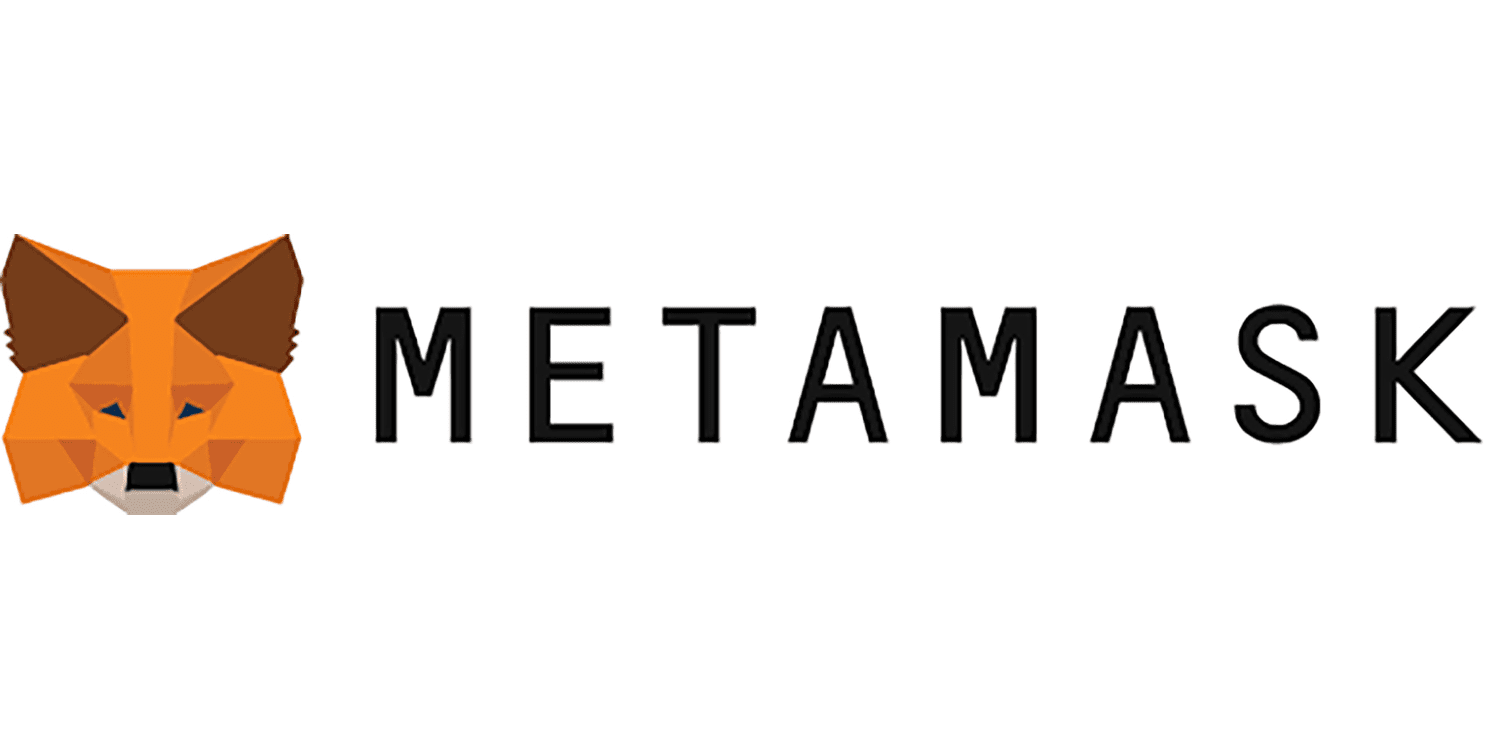
MetaMask is highly popular as a DeFi wallet because it’s easy to use and compatible with a great many dApps. It was first launched as a browser extension but has since included a mobile app for both iOS and Android.
Key Features:
- Available as a browser extension—for Chrome, Firefox, Brave, and Edge—and a mobile app.
- Support the ERC-20 token standard
- Has built-in Token Swapping
- Support Hardware Wallet Integration; Ledger and Trezor
- Custom Gas Fee: Each user can set their gas fee according to network conditions.
Pros:
- User-friendly and intuitive interface suitable for all users, from novices to experts.
- Widely Adopted: Big user base and high dApp support.
- Can be used to manage most Ethereum-based tokens.
Cons:
- Limited support for non-Ethereum blockchains.
- Susceptible to phishing attacks and browser exploits due to its integration with web browsers
2. Trust Wallet

Trust Wallet is a versatile mobile wallet designed to let users manage a wide array of cryptocurrencies and connect them to dApps. The wallet belongs to Binance and is built to provide a very safe and intuitive experience for first-time and experienced crypto users. Trust Wallet is available on both iOS and Android.
Key Features:
- Supports over 65 blockchains, which include Ethereum, Binance Smart Chain, Bitcoin, TRON and more.
- Offers staking capabilities
- Has an integrated DEX for peer-to-peer trading of cryptocurrencies
- Supports NFTs
- Has an integrated dApp browser
Pros:
- Features encryption and biometric authentication
- Support for a wide array of digital asset–cryptocurrencies, NFTs, and more
- Intuitive and user-friendly interface
Cons:
- Available only for mobile devices
- Delayed and slow customer service response times
3. Ledger
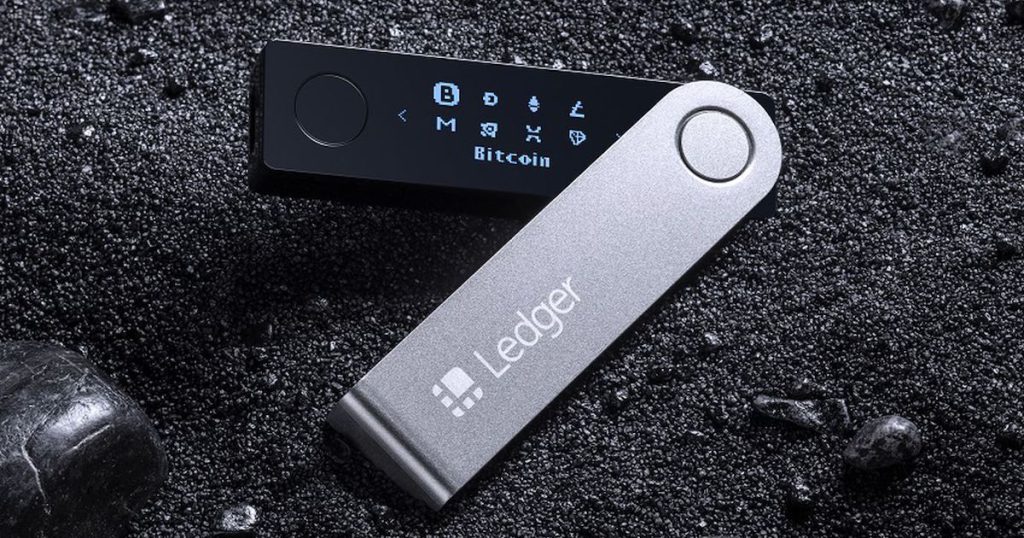
Ledger is a physical DeFi wallet, i.e., it is a hardware device. It is a typical example of what’s cold storage options for cryptocurrencies. However, it has a dashboard, Ledger Live, that allows the user to manage the assets stored in the wallet. The application seamlessly integrates with the hardware wallet and is regularly updated.
Key Features:
- Supports over 5,500 different cryptocurrencies and tokens.
- Includes advanced security protocols, which include SE chips, Pin Code Protection, seed phrase, Two Factor Authentication (2FA), and Bolos (Blockchain Open Ledger Operating System)
- Offline private key storage
Pros:
- Its hardware component significantly reduces the risk of unauthorised access.
- Its dashboard interface is user-friendly and intuitive for users of all levels of expertise.
Cons:
- Costly, requires a hardware device
- Limited integration with dApps
4. Coinbase Wallet
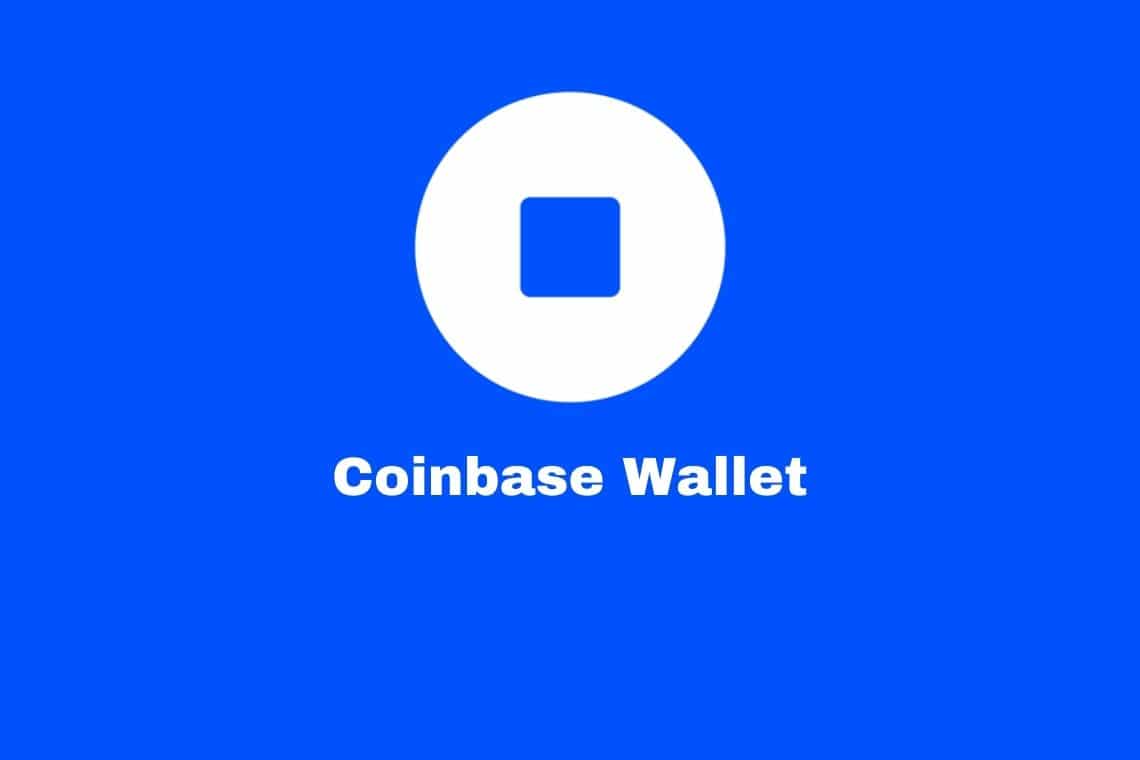
Coinbase Wallet is a self-standing application designed for managing cryptocurrency and dApps by Coinbase directly from mobile devices. The wallet benefits from Coinbase’s strong brand reputation in the industry, providing users with an added layer of trust and reliability.
Key Features:
- Direct Integration with the Coinbase exchange
- Supports a variety of cryptocurrencies
- Integrated dApp browser
- End-to-end encryption
Pros
- User-friendly interface is particularly suitable for beginners
- Its strong security protocols guarantee access to one’s funds
- Coinbase provides extensive educational resources to help users understand cryptocurrencies and blockchain technology.
Cons:
- Limited customer support for Coinbase Wallet compared to Coinbase platform
- Certain features require a Coinbase account
- Limited Support for other crypto exchanges aside from Coinbase.
5. Argent
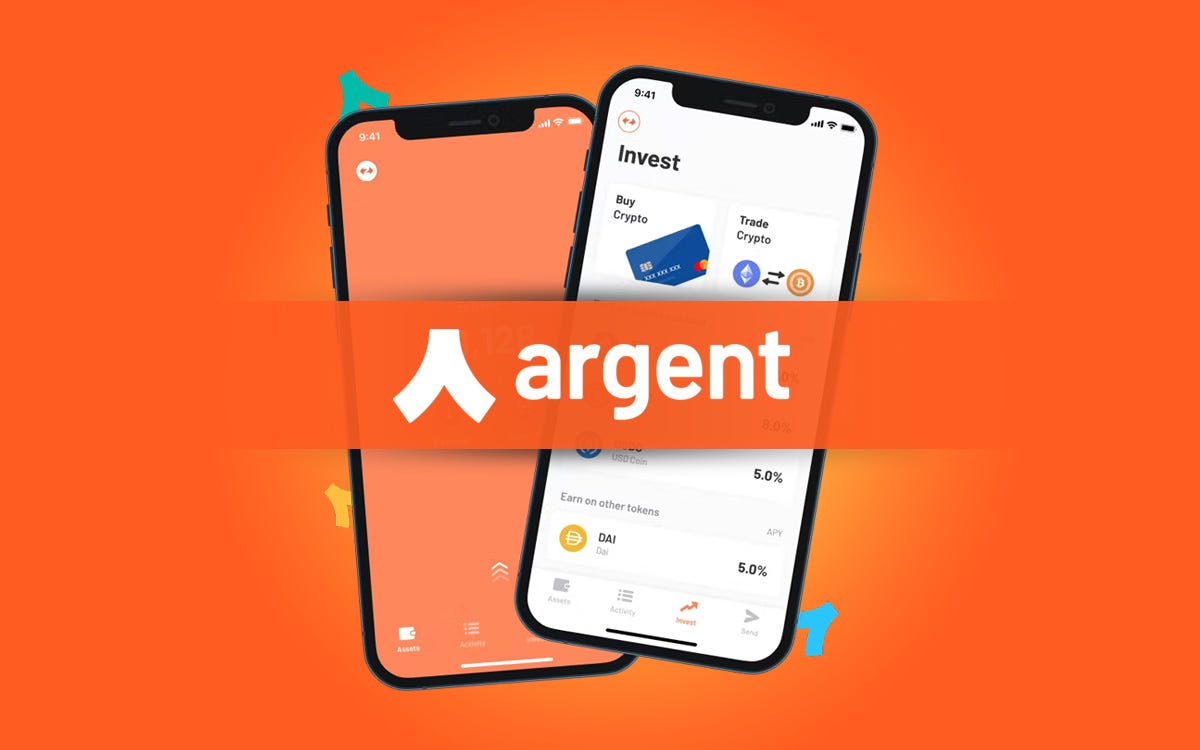
Argent is a mobile-centric DeFi wallet, prioritizing both security and ease of use. The wallet’s developers describe it as “the most simple and secure smart wallet for crypto”.
Key Features:
- Comprehensive transaction fee management tools, Offers features like daily limits and locking options
- Has a social recovery process for account access, that is, users can designate trusted contacts for emergency account recovery.
- Direct integration of DeFi services like Aave, Uniswap, Compound, Yearn Finance, and MakerDAO
Pros:
- User-friendly interface suitable for beginners.
- Doesn’t require the use of a recovery phrase
- Users do not have to pay transaction fees owing to their meta transactions feature
Cons:
- Limited to the Ethereum ecosystem.
- Exclusively available on mobile platforms.
- Advanced features may require some learning for new users.
- Some features rely on centralized services, which may not appeal to all users.
6. MyEtherWallet (MEW)
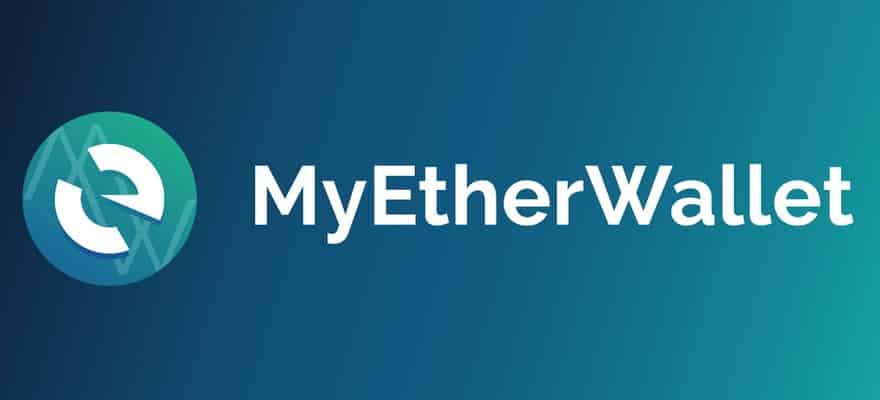
MyEtherWallet (MEW) is a free and open-source interface that facilitates interactions with the Ethereum blockchain, providing users with a comprehensive platform to manage their Ethereum-based assets and seamlessly interact with decentralized applications (dApps).
Key Features:
- Compatible with hardware wallets like Ledger and Trezor for added security.
- Support ERC-20 token standard
- Users have complete control over their private keys and funds.
- Built-in exchange services to swap between different cryptocurrencies.
- Allows purchasing of Ethereum directly with fiat currency.
Pros:
- Enables easy management of both ETH and ERC-20 tokens within a unified interface.
- Offers a straightforward and easy-to-navigate interface.
- Users have full ownership and control of their funds without relying on third parties.
Cons:
- Limited to the Ethereum blockchain
- Primarily a web-based wallet, although the MEWconnect app provides mobile access.
- Steeper learning curve for new users
- Users are solely responsible for managing and securing their private keys.
- Reliance on community and online resources for troubleshooting and support.
7. Exodus
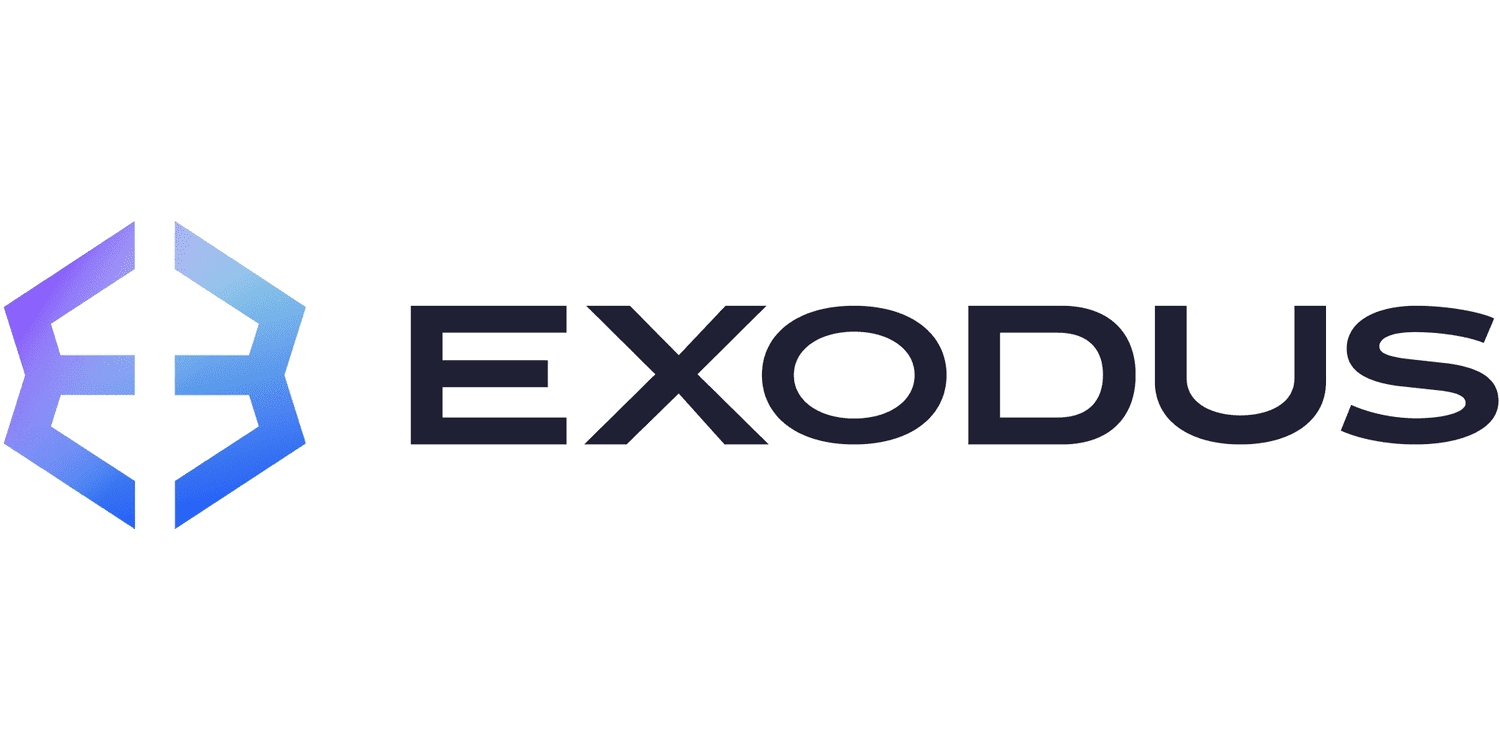
Exodus is well-regarded for its ease of use, wide range of supported assets, and integrated exchange features, making it a strong option for both new and experienced cryptocurrency users. However, its closed-source nature and lack of advanced security features like 2FA may be drawbacks for some.
Key Features:
- Supports over 200 cryptocurrencies and tokens, such as Bitcoin (BTC) ,Ethereum (ETH), Litecoin (LTC), Ripple (XRP), Cardano(ADA), and many more.
- Features an integrated exchange
- Offers real-time portfolio tracking with detailed charts and graphs.
- Available on desktop (Windows, macOS, Linux), mobile (iOS, Android)
- Supports integration of physical hardware wallets like Trezor.
Pros:
- Easy to use, making it accessible for both beginners and experienced cryptocurrency users.
- Supports a large variety of cryptocurrencies, enabling diversified portfolio management.
- Facilitates easy and quick swapping of assets without leaving the wallet.
- Real-time updates and detailed analytics help users monitor their investments.
Cons:
- Higher fees for in-wallet exchanges
- Lacks two-factor authentication (2FA), which is a common security feature in many other wallets.
- Built-in exchange fees can be higher compared to dedicated exchange platforms.
- Cannot buy or sell cryptocurrencies directly with fiat currencies.
8. Trezor
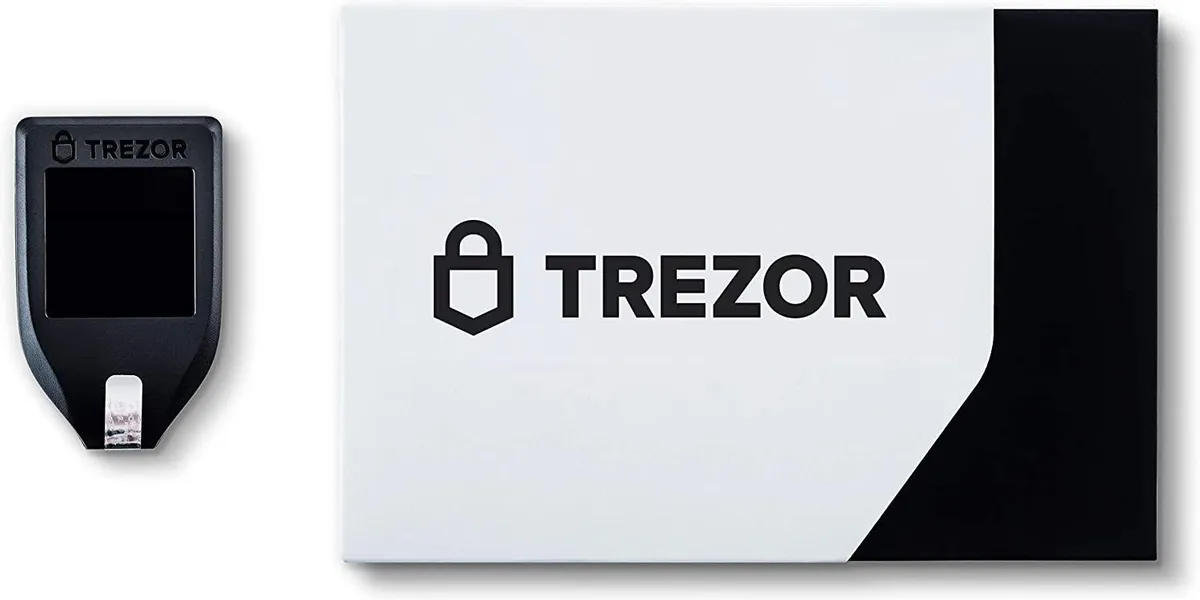
Trezor is a hardware wallet, like Ledger. It also has a digital DeFi dashboard, the Trezor Suite, that serves as an interface designed to help users manage their digital assets.
Key Features:
- Supports 1800+ cryptocurrencies and ERC – 20 tokens
- Incorporates advanced security measures, such as Secure Element and Microcontroller, PIN Code Protection, Recovery Seed (Seed Phrase), Passphrase Protection.
- Supports integration with popular wallet interfaces like Electrum and MyEtherWallet
- Offers robust backup and recovery options, including a recovery seed phrase, ensuring users can retrieve their funds in case the device is lost or damaged.
Pros:
- Maintains open-source transparency, allowing users and developers to review and verify the software’s code.
- Supports a wide range of cryptocurrencies, making it versatile for users with diverse portfolios.
- Has an high level of security against hacking and malware attacks, thanks to offline storage of private keys in the hardware device
Cons:
- Requires the purchase of a Trezor hardware wallet, which may be an additional expense for users.
- Physical loss or damage to the device can result in the loss of funds if the backup seed is not properly secured.
- May be complex for beginners, potentially presenting a learning curve for those new to cryptocurrency management.
9. Rainbow
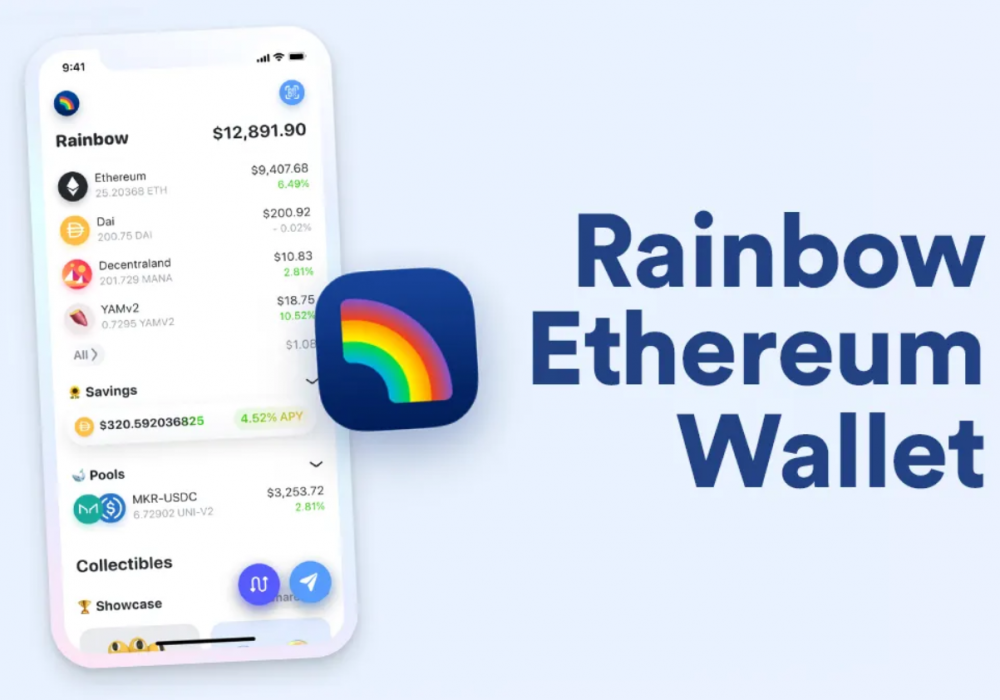
Rainbow is a mobile DeFi wallet tailored for Ethereum enthusiasts, prioritizing simplicity and aesthetics in its design. It is a feature-rich mobile wallet that caters to Ethereum enthusiasts by providing comprehensive token management and full support for NFTs. Its user-friendly design and seamless integration with DeFi services make it a popular choice for those looking to manage their Ethereum-based assets easily and securely.
Key Features:
- Includes comprehensive token management, for Ethereum and ERC-20 tokens.
- Supports NFTs, such as CryptoPunks, Bored Ape Yacht Club, and other ERC-721 and ERC-1155 collectibles.
- Available on both iOS and Android devices,
- Offers a unique social recovery feature, allowing users to regain access to their funds through trusted friends.
Pros:
- User-friendly and visually appealing interface
- Employs strong encryption techniques and offers biometric authentication for enhanced security.
- The social recovery feature adds an extra layer of security and convenience for users.
- Rainbow Wallet is open source, fostering transparency and allowing for community-driven contributions.
Cons:
- Limited to Ethereum
- Fewer features compared to other wallets
- The social recovery feature relies on trusted contacts, which may pose privacy concerns for some users.
10. SafePal
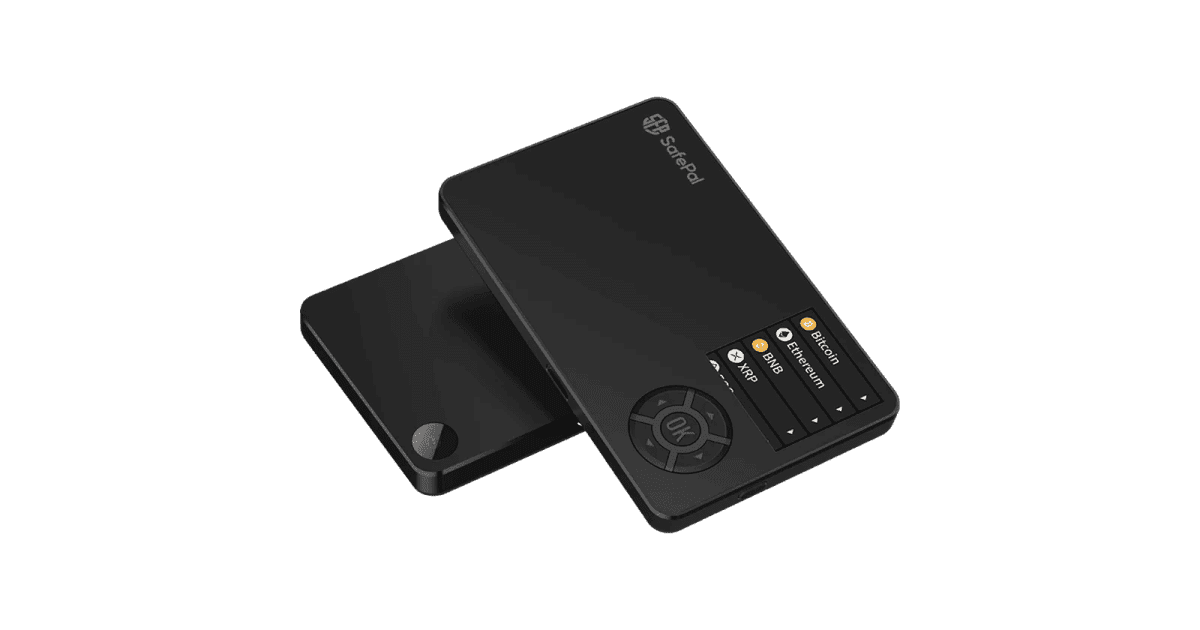
SafePal is another hardware wallet with a digital dashboard that enables users to manage their assets. It offers a secure and user-friendly solution for managing cryptocurrencies, particularly suitable for those prioritizing security and ease of use. However, users should consider its potential compatibility issues before choosing it as their primary wallet.
Key Features:
- Supports 10,000 cryptocurrencies, including Bitcoin, Ethereum, Uniswap
- Provides cold storage capabilities for added security of assets.
- Supports integration with hardware wallets for enhanced security.
- Offers secure backup and recovery options
- Supports direct integrations with dApps
Pros:
- Prioritizes robust security measures.
- Supports diverse cryptocurrencies and wallet types.
- Its simple setup process and intuitive interface make it accessible to users of all levels.
- Employs various privacy measures to protect user information and transactions.
Cons:
- Costly, requires a hardware
- Delayed and Slow Customer Support response times
- Depending on network congestion, users may experience varying transaction fees, impacting cost-effectiveness.
A Comparison of Top 10 DeFi Wallets
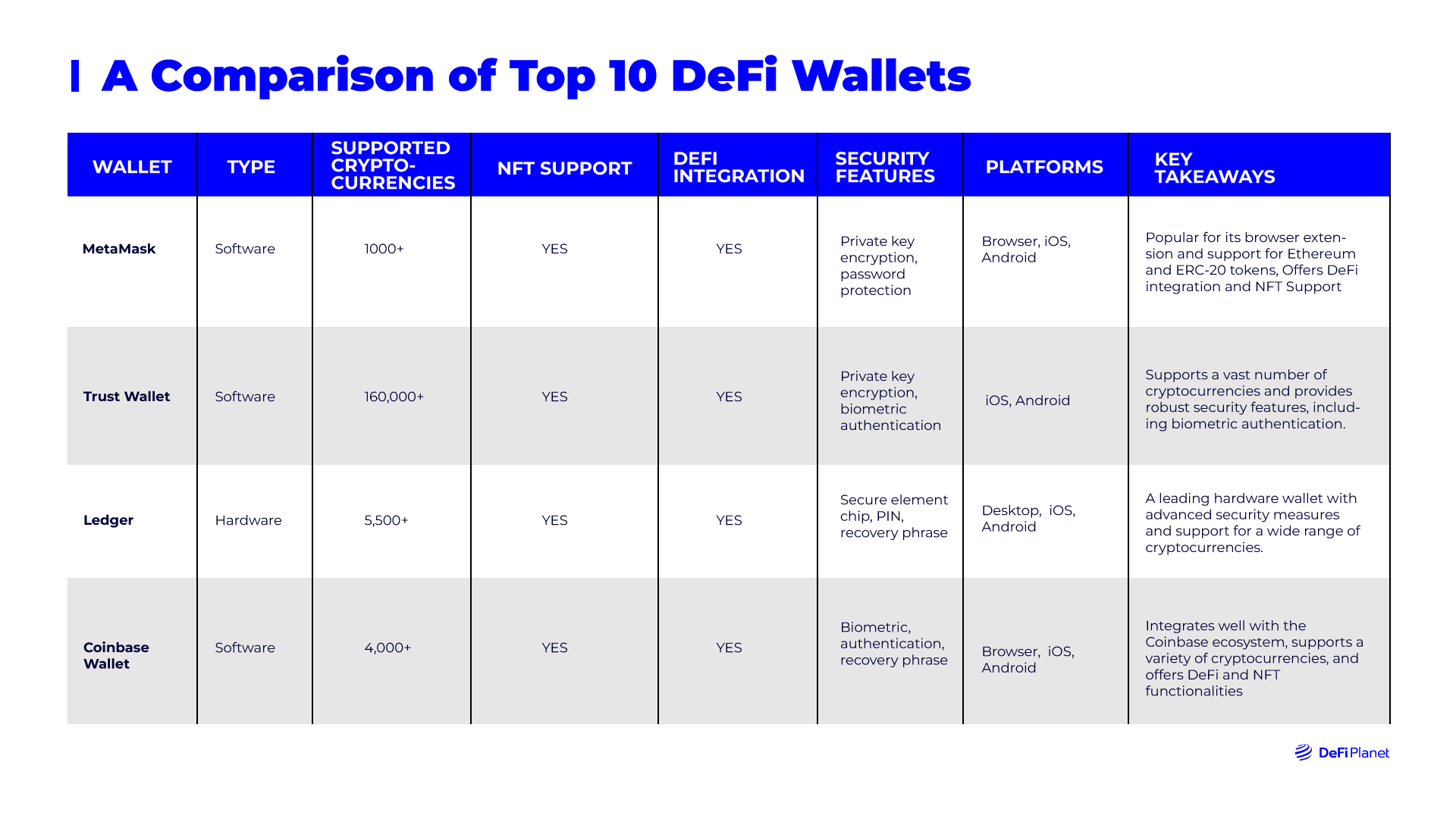
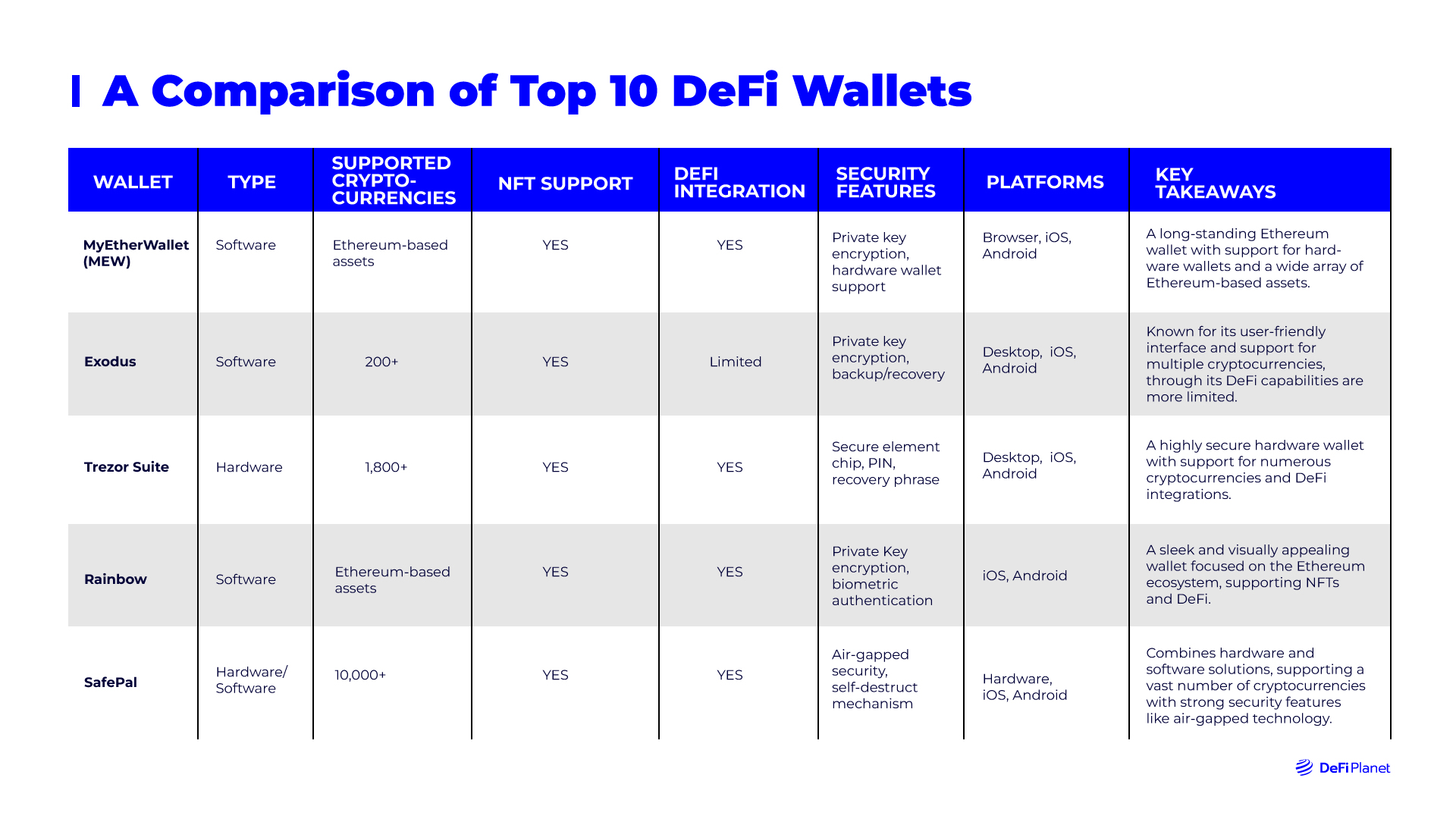
Conclusion
Choosing the right DeFi wallet will help you manage your digital assets safely and become a part of this revolutionary decentralized finance ecosystem. But that is often not enough; you have to take steps to ensure they are safe and secure, just as you keep your physical wallet safe and secure.
READ MORE: How to Do Your Research (DYOR) in Crypto
Some of the best practices you can follow include using strong passwords, enabling two-factor authentication (2FA), and backing up your recovery phrase and storing it in a secure location, never sharing it with anyone.
Also, stay vigilant against phishing attacks by always verifying the authenticity of websites and emails before entering your credentials. Regularly update your wallet software to ensure you have the latest security updates and patches.
Frequently Asked Questions (FAQs)
How can you choose the right DeFi Wallet for you?
These are some of the things you should do and watch for when choosing a DeFi wallet:
- Look for wallets with robust security features, such as hardware wallet integration and Multi-Factor Authentication (MFA).
- Ensure the wallet supports the blockchains and dApps you use.
- Choose a wallet with an intuitive interface that suits your technical skill level.
- Consider the functionalities offered, such as staking, swapping, and lending.
- Opt for wallets with positive reviews and a strong track record in the crypto community.
What is the Best DeFi Wallet App?
The best DeFi wallet app varies based on user needs, but popular options include MetaMask, Trust Wallet, and Coinbase Wallet.
Is a DeFi Wallet Safe?
DeFi wallets are generally safe if you follow security best practices, such as using strong passwords, enabling 2FA, and securely storing your recovery phrase.
What to Do If Your DeFi Wallet Recovery Phrase is Lost?
If you lose your recovery phrase, you may lose access to your wallet and funds. It’s crucial to store your recovery phrase securely and create backups.
What are Common DeFi Wallet Issues?
Common problems are vulnerabilities to security attacks, incompatibility with some dApps, and the complexity of user interfaces.
How to Get DeFi Wallet Support?
Most DeFi wallets offer customer support through their official websites, community forums, or social media channels.
How are DeFi Wallets Taxed?
Capital gains tax may apply to DeFi wallet transactions. Keep track of each transaction and consult with a tax professional to understand the implications.
Disclaimer: This article is intended solely for informational purposes and should not be considered trading or investment advice. Nothing herein should be construed as financial, legal, or tax advice. Trading or investing in cryptocurrencies carries a considerable risk of financial loss. Always conduct due diligence.
If you would like to read more articles (news reports, market analyses) like this, visit DeFi Planet and follow us on Twitter, LinkedIn, Facebook, Instagram, and CoinMarketCap Community.
“Take control of your crypto portfolio with MARKETS PRO, DeFi Planet’s suite of analytics tools.”




















